16 Children's Books For 'Spiritual But Not Religious' Families
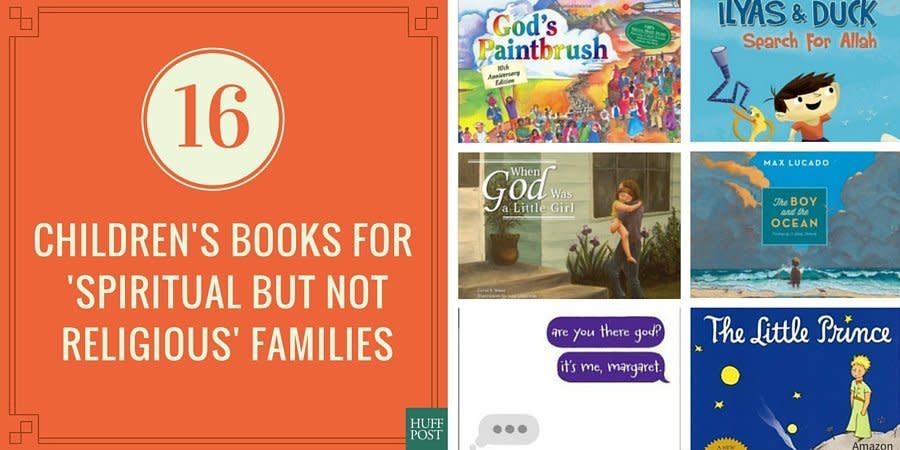
While a growing number of Americans are forsaking traditional religious identities, they're still asking the big questions: What is God? How do I make meaning in my life? What is the purpose of it all?
In fact, although the religiously unaffiliated are now the second-largest religious demographic in the country, Americans' level of spirituality seems to be on the rise. According to Pew Research Center surveys conducted in 2007 and 2014, more people in recent years are reporting feelings of wonder about the universe and spiritual peace and well-being. Among those who identify as "spiritual but not religious," about 67 percent are "absolutely certain" that God exists.
The growth of the unaffiliated is largely driven by the Millennial generation. As this group ages and begins to have kids, Millennial parents will certainly be searching for ways to pass their expansive spirituality to their children.
With that in mind, HuffPost Religion put together this book list for "spiritual but not religious" families who want their kids to look at the universe (and at the possibility of God) with plenty of awe and wonder. Most are books that describe a general sense of spirituality. Some refer to a specific religious tradition in a way that is accessible to people of all faiths. Other books celebrate the values that unite all faiths -- being kind to your neighbor, loving boundlessly, and treating people who are different with respect.
Scroll down for a list that includes books for a variety of ages -- from young children to adolescents -- and add your own favorites to the comments below.
The Three Questions, by Jon J. Muth
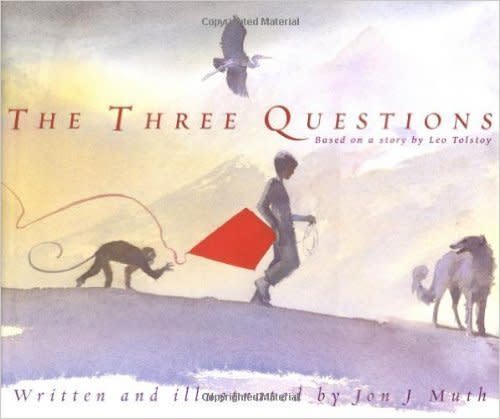
Cry, Heart, But Never Break, by Glen Ringtved
!["This contemplative tale sprang from the depths of [Ringtved's] own experience — when his mother was dying and he struggled to explain what was happening to his young children, she offered some words of comfort: 'Cry, Heart, but never break.' It was the grandmother’s way of assuring the children that the profound sadness of loss is to be allowed rather than resisted, then folded into the wholeness of life, which continues to unfold." -- <a href="https://www.brainpickings.org/2016/03/08/cry-heart-but-never-break/" target="_blank">Brain Pickings</a>](https://s.yimg.com/ny/api/res/1.2/vfh_9er1d.47y1DcOcrMaQ--/YXBwaWQ9aGlnaGxhbmRlcjt3PTk2MA--/https://img.huffingtonpost.com/asset/56fd8380150000ad000b3c23.jpg)
Maddi's Fridge, by Lois Brandt
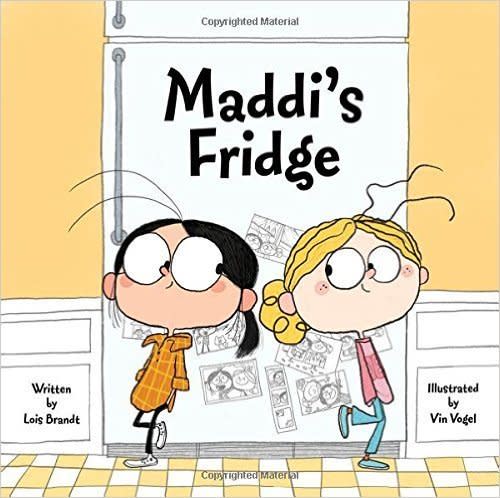
The Phantom Tollbooth, by Norton Juster
![“<i>The Phantom Tollbooth</i>‘s message is bracing but benign: it calls on us to rise to the challenge of the world by paying proper attention to its wonder and difficulty. Boredom and depression are far from merely childish demons, not least because an adult has to battle them for so much longer. When [main character] Milo thinks at the book’s beginning that ‘it seemed a great wonder that the world, which was so large, could sometimes feel so small and empty,’ it must strike a chord with every reader, young or old.” — <a href="http://www.theguardian.com/books/2013/jul/17/phantom-tollbooth-norman-juster" target="_blank" data-beacon="{"p":{"mnid":"entry_text","lnid":"citation","mpid":3}}">The Guardian</a>](https://s.yimg.com/ny/api/res/1.2/6RPZVrPwE5lD_TgY74XY.w--/YXBwaWQ9aGlnaGxhbmRlcjt3PTk2MA--/https://img.huffingtonpost.com/asset/56fd7f3f1e0000b300705ec4.jpg)
The Little Prince, by Antoine de Saint-Exupéry
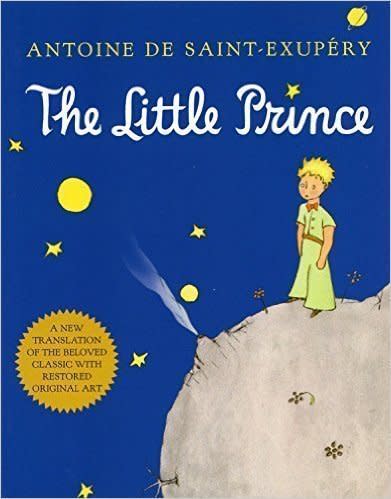
Are You There God? It's Me, Margaret, by Judy Blume
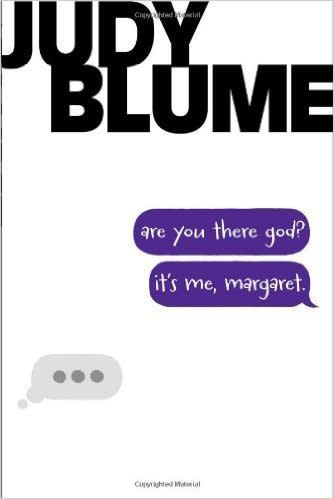
One Good Deed, by Terri Fields
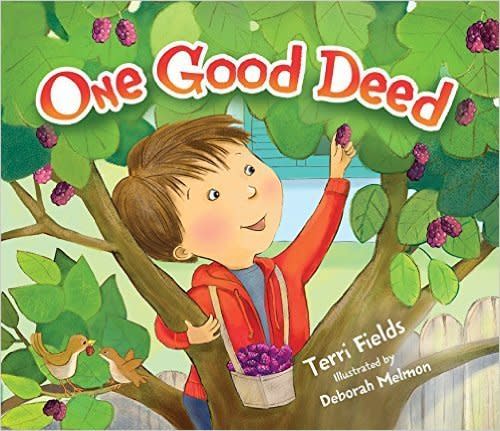
Steps and Stones: An Anh's Anger Story, by Gail Silver
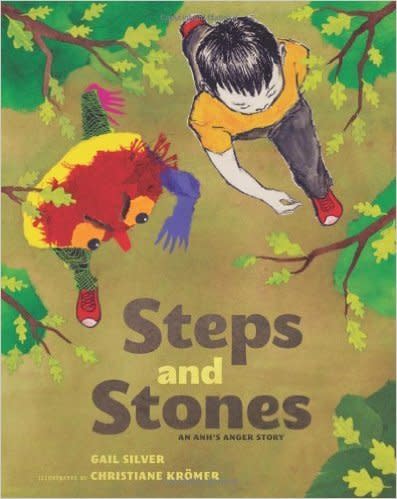
Ilyas & Duck Search For Allah, by Omar S. Khawaja
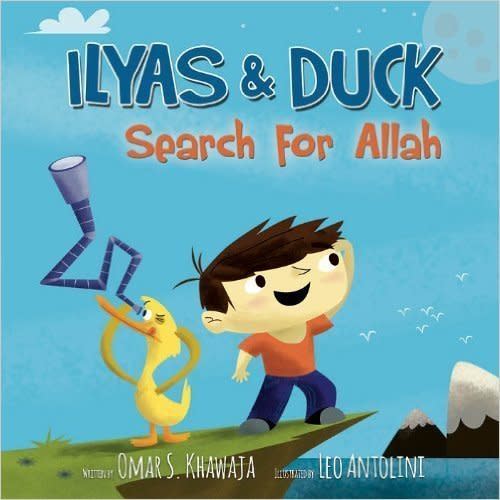
Ganesha's Sweet Tooth, by Emily Haynes and Sanjay Patel
!["[Ganesha is] a kid with a wicked sweet tooth, which combined with his hubris leads him to bite into a jawbreaker candy that breaks his tusk. As he confronts his fear of being ridiculed for his 'lopsided' looks, complaining to his best friend Mr. Mouse, he runs into Vyasa, the poet. The old man tells the young elephant god that he’s been looking for him because he needed a scribe to write his poem about 'the beginning of things,' which was so long that 'all the pens in the world would break before it was done.' The two strike a deal for Ganesha to use his broken tusk to write the poem without stopping, as long as he understood the meaning of it all. And 100,000 verses later <i>The Mahabharata</i> was finished and the broken tusk that Ganesha once tried to toss away now had value and his looks were much less important." -- <a href="http://www.ew.com/article/2012/10/03/ganeshas-sweet-tooth" target="_blank">Entertainment Weekly</a>](https://s.yimg.com/ny/api/res/1.2/EPSya6CQlewLSRptxogBDw--/YXBwaWQ9aGlnaGxhbmRlcjt3PTk2MA--/https://img.huffingtonpost.com/asset/56febb061e00008700706026.jpg)
The Boy and the Ocean, by Max Lucado
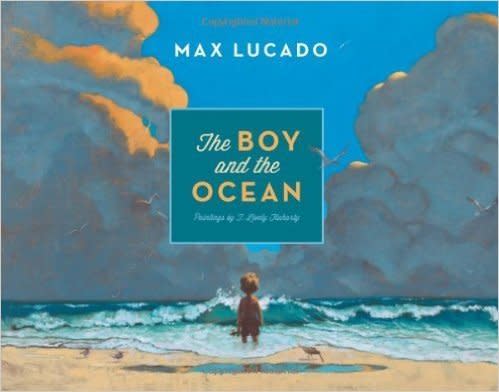
What is God, by Etan Boritzer
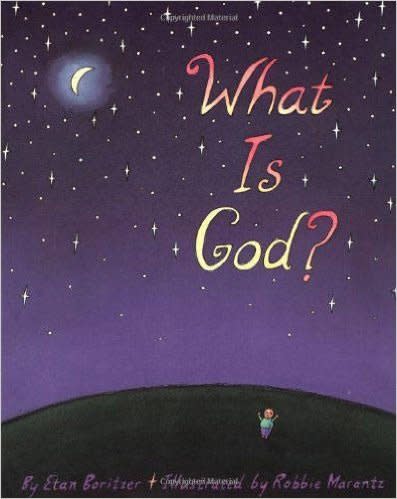
When God Was A Little Girl, by David Weiss
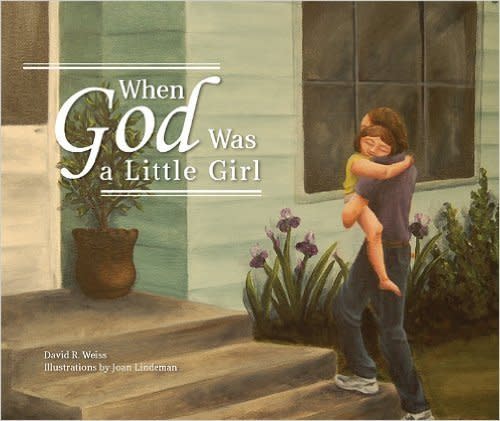
The Apple Tree
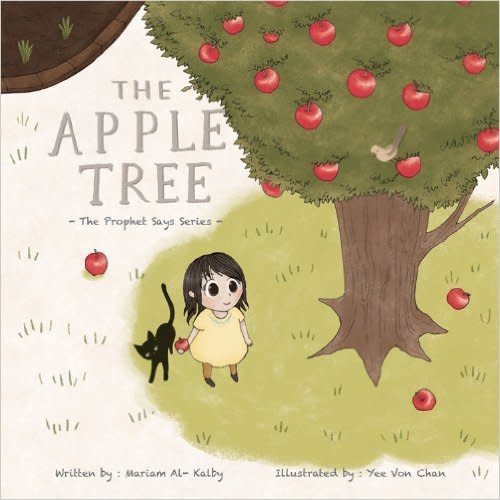
The Golden Rule, by Ilene Cooper
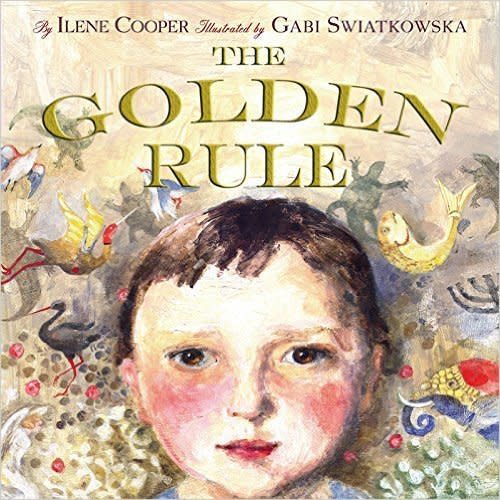
God's Paintbrush, by Rabbi Sandy Eisenberg Sasso
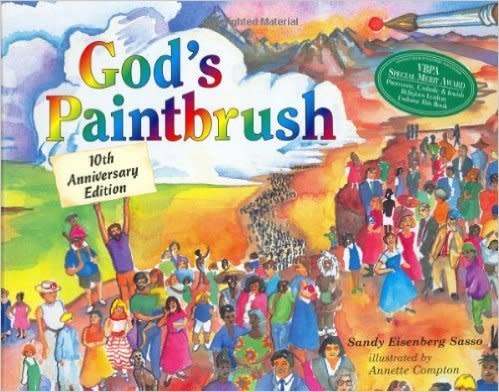
Also on HuffPost
The Phantom Tollbooth, by Norton Juster
![<p>"<em>The Phantom Tollbooth</em>'s message is bracing but benign: it calls on us to rise to the challenge of the world by paying proper attention to its wonder and difficulty. Boredom and depression are far from merely childish demons, not least because an adult has to battle them for so much longer. When [main character] Milo thinks at the book's beginning that 'it seemed a great wonder that the world, which was so large, could sometimes feel so small and empty,' it must strike a chord with every reader, young or old." -- <a href="http://www.theguardian.com/books/2013/jul/17/phantom-tollbooth-norman-juster" target="_blank">The Guardian</a></p>](https://s.yimg.com/ny/api/res/1.2/4osevrDVzaMonKFleFNebQ--/YXBwaWQ9aGlnaGxhbmRlcjt3PTk2MA--/https://img.huffingtonpost.com/asset/55d2396214000077002e3191.jpg)
"The Phantom Tollbooth's message is bracing but benign: it calls on us to rise to the challenge of the world by paying proper attention to its wonder and difficulty. Boredom and depression are far from merely childish demons, not least because an adult has to battle them for so much longer. When [main character] Milo thinks at the book's beginning that 'it seemed a great wonder that the world, which was so large, could sometimes feel so small and empty,' it must strike a chord with every reader, young or old." -- The Guardian
The Opposite of Loneliness: Essays and Stories, by Marina Keegan
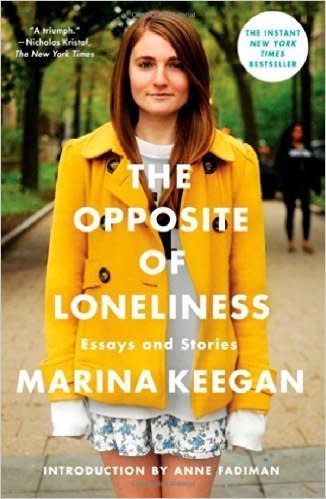
"When Marina Keegan wasn’t tapped to join one of Yale’s secret societies, she gave herself less than two hours to wallow in disappointment, then pledged to spend the time she would have spent 'chatting in a tomb' writing a book. Five days after graduation, Keegan was killed in a car accident on Cape Cod. She was 22.
'The Opposite of Loneliness' is a record of that time better spent. The book of nine short stories and nine essays takes its title from Keegan’s last essay to appear in the Yale Daily News, which went viral in the days after her death when it was read by 1.4 million people in 98 countries. In it Keegan writes with an eerie urgency: 'We can’t, we MUST not lose this sense of possibility because in the end, it’s all we have.'" -- The Boston Globe
Sophie's World, by Jostein Gaarder
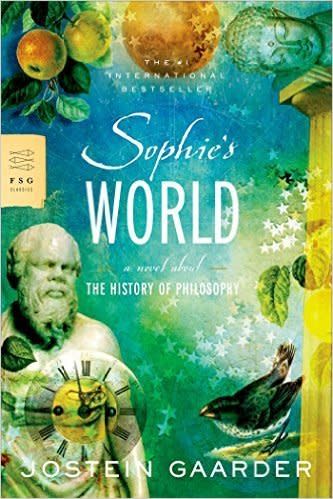
Thirst: Poems, by Mary Oliver
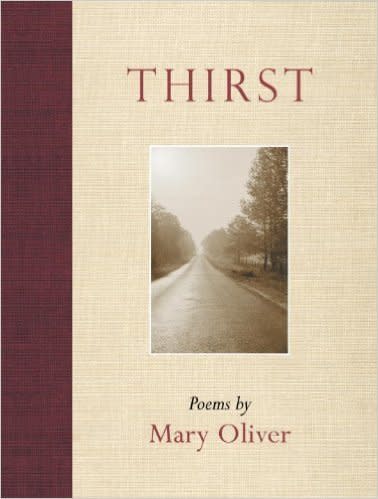
"Throughout the poems in Thirst, Oliver explores her sense of God, her understanding of faith... In 'On Thy Wondrous Works I Will Meditate,' one of her best poems, she offers a riff on the 145th psalm, stepping through the thickets of soul-searching, attempting to locate and believe in belief itself... The poem ends with a colloquy with God: 'O Lord of melons, of mercy, though I am / not ready, nor worthy, I am climbing toward you.'" -- The Guardian
Tiny Beautiful Things: Advice on Love and Life From Dear Sugar, by Cheryl Strayed
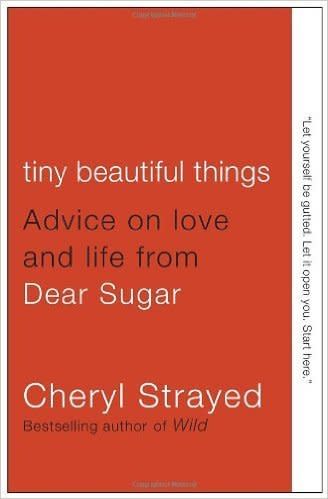
"What makes a great advice columnist? The Portland writer Cheryl Strayed has proved during her tenure at the website the Rumpus, where she has helmed the Dear Sugar column since 2010, that the only requirement is that you give great advice -- tender, frank, uplifting and unrelenting. Strayed's columns, now collected as 'Tiny Beautiful Things: Advice on Love and Life From Dear Sugar,' advise people on such diverse struggles as miscarriage, infidelity, poverty and addiction, and it's really hard to think of anyone better at the job." -- SFGate
The Little Prince, by Antoine de Saint-Exupéry
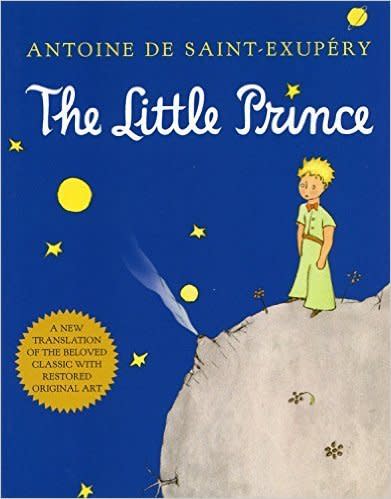
"Disguised as a children's book, Antoine de Saint-Exupéry's novella The Little Prince offers more wisdom in its very few pages than some authors can hope to produce in a lifetime. The fact that it's been translated into more than 230 languages from the original French is proof that its message resonates worldwide." -- The Huffington Post
The Year of Magical Thinking, by Joan Didion
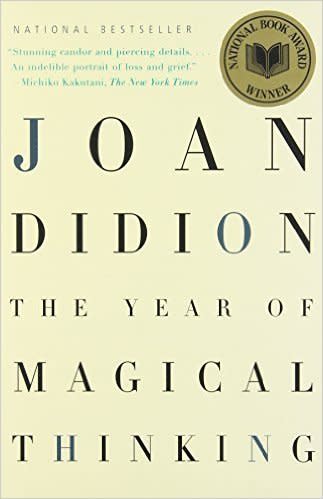
The Alchemist, by Paulo Coelho
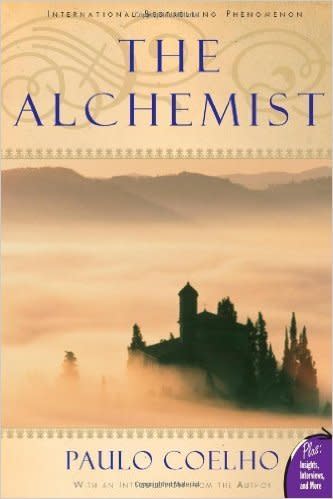
"The charming tale of Santiago, a shepherd boy, who dreams of seeing the world, is compelling in its own right, but gains resonance through the many lessons Santiago learns during his adventures. He journeys from Spain to Morocco in search of worldly success, and eventually to Egypt, where a fateful encounter with an alchemist brings him at last to self-understanding and spiritual enlightenment." -- Publishers Weekly
The Red Tent, by Anita Diamant
![<p>"In 'The Red Tent,' [Diamant] imagined a fuller life for Dinah, daughter of Jacob, whose relationship with the prince Schechem led to a brutal massacre carried out on the royal family by two of her brothers. The 'red tent' is the traditional retreat for menstruating women, and a symbol of their mutual love and support in a world dominated by men... Having given voice to one of the Bible’s silent women, she believes both genders can appreciate the perspective: 'We’ve been reading it from men’s point of view for thousands of years.'" -- <a href="https://www.bostonglobe.com/arts/2014/12/04/xxxxxx/KWZrTANDP6X2Lt7TgztWeJ/story.html" target="_blank">The Boston Globe</a></p>](https://s.yimg.com/ny/api/res/1.2/KuMI97XNsOto1C4gZyPy_A--/YXBwaWQ9aGlnaGxhbmRlcjt3PTk2MA--/https://img.huffingtonpost.com/asset/55d5461614000077002e3762.jpg)
"In 'The Red Tent,' [Diamant] imagined a fuller life for Dinah, daughter of Jacob, whose relationship with the prince Schechem led to a brutal massacre carried out on the royal family by two of her brothers. The 'red tent' is the traditional retreat for menstruating women, and a symbol of their mutual love and support in a world dominated by men... Having given voice to one of the Bible’s silent women, she believes both genders can appreciate the perspective: 'We’ve been reading it from men’s point of view for thousands of years.'" -- The Boston Globe
Mortality, by Christopher Hitchens
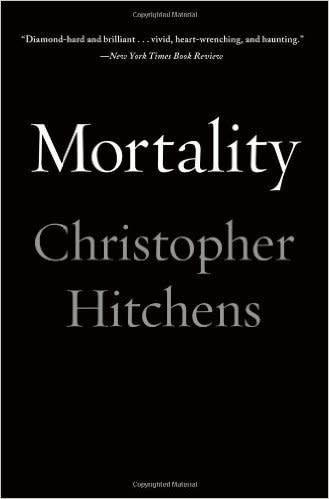
"When a consummately articulate, boundlessly bold journalist stricken with stage 4 esophageal cancer reports from the front lines about facing what he calls, among other things, 'hello darkness my old friend,' you sit up and pay attention. Mortality, by virtue of its ultimate unavoidability, raises questions about the very meaning of life, making it as challenging a subject as any tackled by Christopher Hitchens in his brilliant career." -- NPR
The God of Small Things, by Arundhati Roy
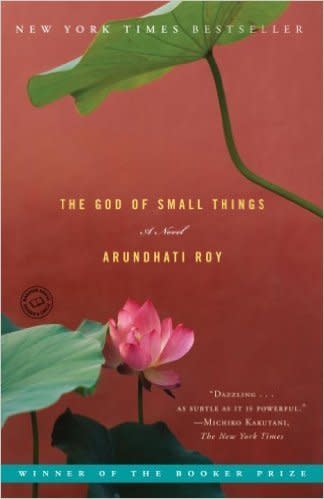
Mother Night, by Kurt Vonnegut
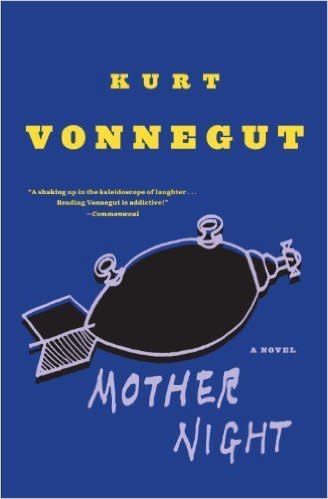
"Howard Campbell, Jr., the narrator of 'Mother Night,' is an American writer living in Germany when the Nazis come to power. He is recruited by United States military intelligence to be a spy when World War II begins. As a respected playwright married to a popular German actress, Campbell easily ingratiates himself to the Nazis and offers his services as an anti-semite... The author reminds us that no matter how righteous our cause, no matter how insane and evil our enemy, we must be careful how we act if we want to keep our souls as artists and humans. True in World War II, true in the sixties, true now." -- Mark Lindquist
The Shack, by Wm. Paul Young
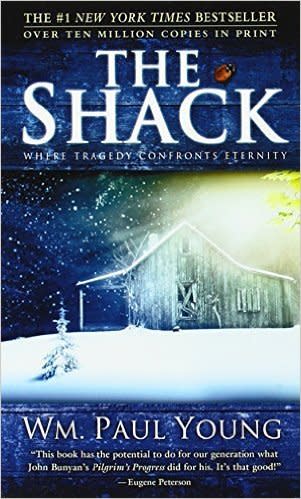
"America often gets lampooned as a nation of Jesus freaks, but it's even more a country caught up in the never-ending search for authenticity. Young's too-weird-for-the-pulpit thoughts about how Adam's rib and the female uterus form a 'circle of relationship' have the appeal of knobby heirloom-produce in a world where much religion arrives vacuum-packed. His theories -- how to believe in Adam while supporting particle-physics research; why the Lord is OK with your preference for lewd funk more than staid church music -- accomplish what mainstream faiths tend to fail at: connecting recondite doctrine to the tastes, rhythms, and mores of modern life." -- Slate
The Dude and the Zen Master, by Jeff Bridges and Bernie Glassman
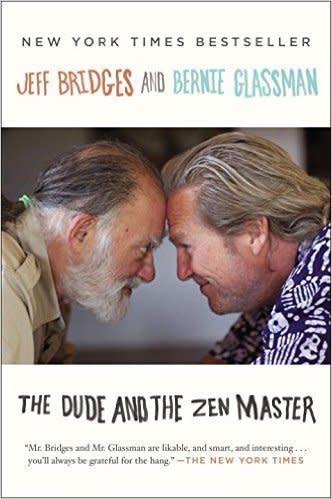
"At a party about 15 years ago, Jeff Bridges found himself seated between spiritual leaders Bernie Glassman and Ram Dass, which led to an unexpected conversation about the parallels between The Dude, Bridges' iconic character in 'The Big Lebowski,' and the tenets of Buddhism... That conversation evolved into The Dude and the Zen Master, a book by Bridges and Glassman that captures their dialogue about the nature of spirituality." -- The Huffington Post
How Should a Person Be?, by Sheila Heti
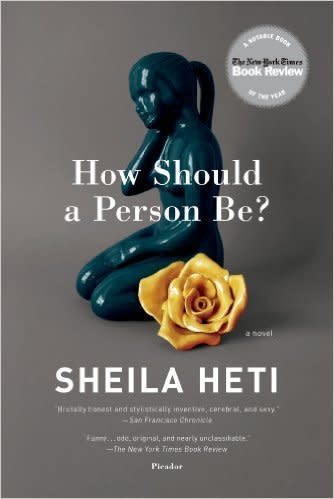
"Heti has cited 'The Hills,' the bygone MTV show about young people in Los Angeles, as one of the primary influences on 'How Should a Person Be?'... The novel shares with much reality television a kind of episodic aimlessness, and a focus on young, self-involved characters who spend a lot of time thinking about how they look to other people. In the hands of another novelist, this debt to reality television might lead to a biting indictment of the shallowness of the culture. But that is not what happens here. Heti sees the silliness in the desire for fame that drives such fare, but she also knows that same desire is involved in the impulse to make art." -- The New York Times
The Book: On the Taboo Against Knowing Who You Are, by Alan Watts
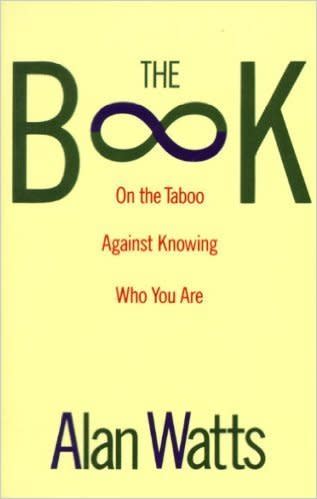
"Envisioned as a packet of essential advice a parent might hand down to his child on the brink of adulthood as initiation into the central mystery of life, this existential manual is rooted in what Watts calls 'a cross-fertilization of Western science with an Eastern intuition.' Though strictly nonreligious, the book explores many of the core inquiries which religions have historically tried to address -- the problems of life and love, death and sorrow, the universe and our place in it, what it means to have an 'I' at the center of our experience, and what the meaning of existence might be." -- Brain Pickings
Persepolis: The Story of a Childhood, by Marjane Satrapi
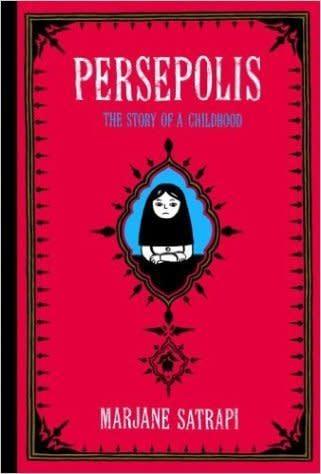
"Marjane Satrapi's 'Persepolis' is the latest and one of the most delectable examples of a booming postmodern genre: autobiography by comic book... Satrapi's book combines political history and memoir, portraying a country's 20th-century upheavals through the story of one family. Her protagonist is Marji, a tough, sassy little Iranian girl, bent on prying from her evasive elders if not truth, at least a credible explanation of the travails they are living through... The book is full of bittersweet drawings of Marji's tête-à-têtes with God, who resembles Marx, 'though Marx's hair was a bit curlier.'" -- The New York Times
The Time Machine, by H.G. Wells
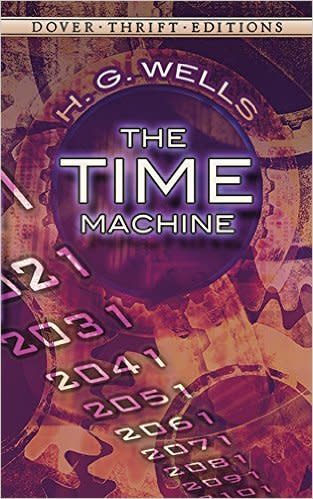
"The book was a brilliant combination of scientific speculation, sociological treatise and exciting storytelling. It not only gave popular culture the notion of time as a physical dimension; it also offered a parable of class warfare in which two futuristic races, the above-ground Eloi and the subterranean Morlocks, stood in for the working and leisure classes of Wells's time... The novel is a pessimistic look into the future and a downbeat statement about human evolution." -- The New York Times
The Last Lecture, by Randy Pausch with Jeffrey Zaslow
![<p style="outline: none; color: #333333; font-family: Georgia, 'Times New Roman', serif; line-height: 23px !important; font-size: 16px !important;">"[This] last lecture, which Pausch entitled 'Really achieving your childhood dreams,' takes as its theme his youthful ambitions: how he achieved them, and how he helped others to achieve theirs. He doesn't discuss spirituality or religion, but speaks with the simple authority of a man who is looking death in the face and assessing what's really important about life. 'Never lose the childlike wonder,' he advises. 'Show gratitude... Don't complain; just work harder... Never give up.'" -- <a href="http://www.independent.co.uk/news/people/profiles/randy-pausch-the-dying-man-who-taught-america-how-to-live-800182.html" target="_blank">The Independent</a></p>](https://s.yimg.com/ny/api/res/1.2/jo0a4JRGQ7FV6P2KhPQQ8g--/YXBwaWQ9aGlnaGxhbmRlcjt3PTk2MA--/https://img.huffingtonpost.com/asset/55d350321400002e002e32b8.jpg)
"[This] last lecture, which Pausch entitled 'Really achieving your childhood dreams,' takes as its theme his youthful ambitions: how he achieved them, and how he helped others to achieve theirs. He doesn't discuss spirituality or religion, but speaks with the simple authority of a man who is looking death in the face and assessing what's really important about life. 'Never lose the childlike wonder,' he advises. 'Show gratitude... Don't complain; just work harder... Never give up.'" -- The Independent
Letters to a Young Poet, by Rainer Maria Rilke
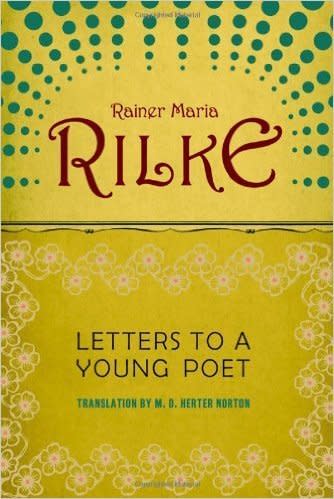
Long Day's Journey into Night, by Eugene O'Neill
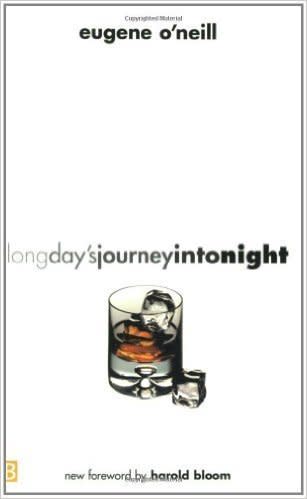
Autobiography of a Yogi, by Paramahansa Yogananda
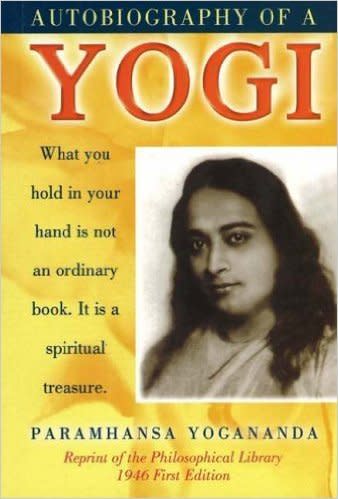
"Yogananda is best known for his groundbreaking memoir, 'Autobiography of a Yogi.' It has sold well over four million copies since its publication in 1947, and I suspect it has been read by two or three times that many, because it is the sort of book people lend to their friends. This was especially true in the 1960s and '70s, when Baby Boomer seekers were thirsty for Eastern wisdom and couldn't afford the five bucks to buy the AY, as it has come to be known... The AY prompted more Americans to explore Indian spirituality than any other text." -- Philip Goldberg, The Huffington Post
A Guide to the Bodhisattva Way of Life, by Santideva
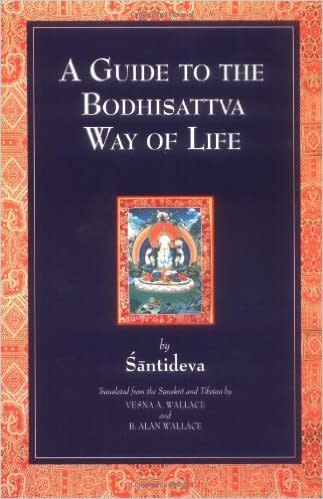
"This book is a translation of a famous and universally loved poem for daily living composed by the 8th century Buddhist Sage Shantideva. It charts the spiritual journey of a Bodhisattva, one who is committed to attaining full enlightenment for the sake of all living beings. The poem is written from the point of view of a practitioner and provides an extraordinary insight into the process of inner transformation one goes through while traversing the Bodhisattva path." -- Kadampa.org
A Gift of Love: Sermons from Strength to Love and Other Preachings, by the Rev. Dr. Martin Luther King Jr.
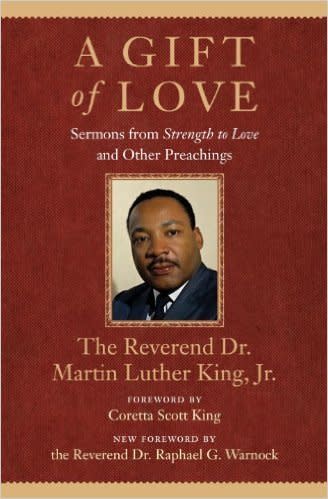
Man's Search for Meaning, by Viktor E. Frankl
![<!-- [if gte mso 9]><xml> <o:OfficeDocumentSettings> <o:AllowPNG/> </o:OfficeDocumentSettings> </xml><![endif]--> <p>"The book begins with a lengthy, austere, and deeply moving personal essay about Frankl's imprisonment in Auschwitz and other concentration camps for five years, and his struggle during this time to find reasons to live. The second part of the book, called 'Logotherapy in a Nutshell,' describes the psychotherapeutic method that Frankl pioneered as a result of his experiences in the concentration camps. Freud believed that sexual instincts and urges were the driving force of humanity's life; Frankl, by contrast, believes that man's deepest desire is to search for meaning and purpose... 'Our generation is realistic, for we have come to know man as he really is,' Frankl writes. 'After all, man is that being who invented the gas chambers of Auschwitz; however, he is also that being who entered those gas chambers upright, with the Lord's Prayer or the Shema Yisrael on his lips.'" -- <a href="http://www.amazon.com/Mans-Search-Meaning-Viktor-Frankl/dp/0671023373" target="_blank">Amazon review</a> </p>](https://s.yimg.com/ny/api/res/1.2/Rjhj9DWe.4GYOHbyLgON7w--/YXBwaWQ9aGlnaGxhbmRlcjt3PTk2MA--/https://img.huffingtonpost.com/asset/55d209821400002e002e3117.jpg)
"The book begins with a lengthy, austere, and deeply moving personal essay about Frankl's imprisonment in Auschwitz and other concentration camps for five years, and his struggle during this time to find reasons to live. The second part of the book, called 'Logotherapy in a Nutshell,' describes the psychotherapeutic method that Frankl pioneered as a result of his experiences in the concentration camps. Freud believed that sexual instincts and urges were the driving force of humanity's life; Frankl, by contrast, believes that man's deepest desire is to search for meaning and purpose... 'Our generation is realistic, for we have come to know man as he really is,' Frankl writes. 'After all, man is that being who invented the gas chambers of Auschwitz; however, he is also that being who entered those gas chambers upright, with the Lord's Prayer or the Shema Yisrael on his lips.'" -- Amazon review
Daring Greatly: How the Courage to Be Vulnerable Transforms the Way We Live, Love, Parent, and Lead, by Brené Brown
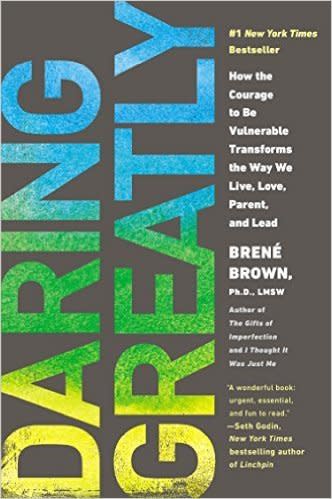
"Brené Brown, a research professor at the University of Houston Graduate College of Social Work, is the first to admit that vulnerability makes her uncomfortable, but posits that daring to fail is the only true way to be wholeheartedly engaged in any aspect of life. 'Experiencing vulnerability isn’t a choice -- the only choice we have is how we’re going to respond when we are confronted with uncertainty, risk and emotional disclosure,' she says." -- Publishers Weekly
Love HuffPost? Become a founding member of HuffPost Plus today.
This article originally appeared on HuffPost.

